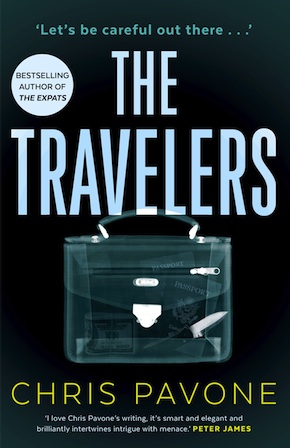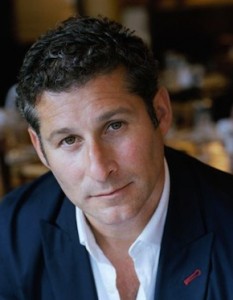Hidden agenda
by Chris Pavone
“An automatic must-read.” Lee Child
Do you know whom you work for? Are you sure?
I myself had my first doubts thirty years ago, when I was attending an expensive university that my family couldn’t afford. Which meant I had to work paying jobs constantly – part-time gigs during the academic year, and full-time temporary jobs during week-long spring breaks and month-long winter holidays, and of course full-length summer positions, two months of commuting on the hot crowded subway, sitting in a cramped cubicle, collecting paper cuts and paychecks.
One of those summers was at an advertising agency with a very specific mandate: to create campaigns that would be compelling when translated into multiple languages or across different cultures, such as for Disney across Western Europe, or Coca-Cola throughout South America. Everyone in the office seemed to speak a half-dozen languages, smoke two cigarettes at once, hop on a plane at a moment’s notice to hand-hold clients in Paris or Rio.
Or at least that’s what they told me they were doing. But how the hell did I know? I didn’t.
I’ve had a few dozen jobs in my life, for all sorts of employers – federal government and local, a bar and a deli and a convenience store, a tiny law firm and a few gigantic ones and a massive international bank, plus many variations on publishing – a newspaper sold by homeless people, a group of quarterly business journals and another of monthly puzzle magazines, a small independent book house and large one, a privately-held publishing conglomerate and a publicly-traded one. (I was not ashamed to quit; I did it enthusiastically, frequently.)
Very rarely have I personally known the owners, anxious guys signing payroll checks after hours, peering at paperwork over reading glasses. Sometimes I was nominally aware of who owned the place – names on the door, on the letterhead – but never met them. Sometimes I had absolutely no idea.
What about you? Do you know, with absolute certainty? How, exactly? Did you check the records of incorporation? Tax filings? Did you hire a private investigator to follow the boss home, break into his den, and rifle through his paperwork?
Probably not, unless you’re reading this from prison.
No, you probably accepted what (if anything) you were told – we’re owned by a small consortium of investors, a non-profit institution, an absentee family who live in Monaco, that guy with the reading glasses – with very little evidence, nothing that couldn’t be fabricated in an afternoon by a marginally computer-literate fourteen-year-old.
What about the profits, where do they go? Into a non-profit trust? Disbursed as shareholder dividends? Deposited into the bank account of that anxious guy?
And what does he do with the money? Pay for his kids’ school? Redecorate? Donate to radical political causes with which you passionately disagree? Orchestrate illegal paramilitary operations to destabilize unfriendly foreign regimes? Fund terrorists? You don’t really know, do you?
Yet here you are, coming to work every day, staying late and losing sleep, missing your own kids’ school musicals and football matches. For what? For the elusive promise of a corner office? A senior VP position where you’ll be responsible for larger bottom-line contributions – to something evil?
No, of course not, that can’t be.
Are you positive?
No. Of course not. You can’t be.
Welcome to The Travelers.
 Chris Pavone grew up in Brooklyn, graduated from Cornell, and was an editor at book-publishing houses in New York for fifteen years. His 2012 debut The Expats was an international bestseller and won both the Edgar and Anthony Awards for best first novel. It was followed in 2014 by the New York Times bestseller The Accident. The Travelers is published by Faber & Faber. Read more.
Chris Pavone grew up in Brooklyn, graduated from Cornell, and was an editor at book-publishing houses in New York for fifteen years. His 2012 debut The Expats was an international bestseller and won both the Edgar and Anthony Awards for best first novel. It was followed in 2014 by the New York Times bestseller The Accident. The Travelers is published by Faber & Faber. Read more.
chrispavone.com
Facebook: Chris Pavone
Author portrait © Nina Subin

